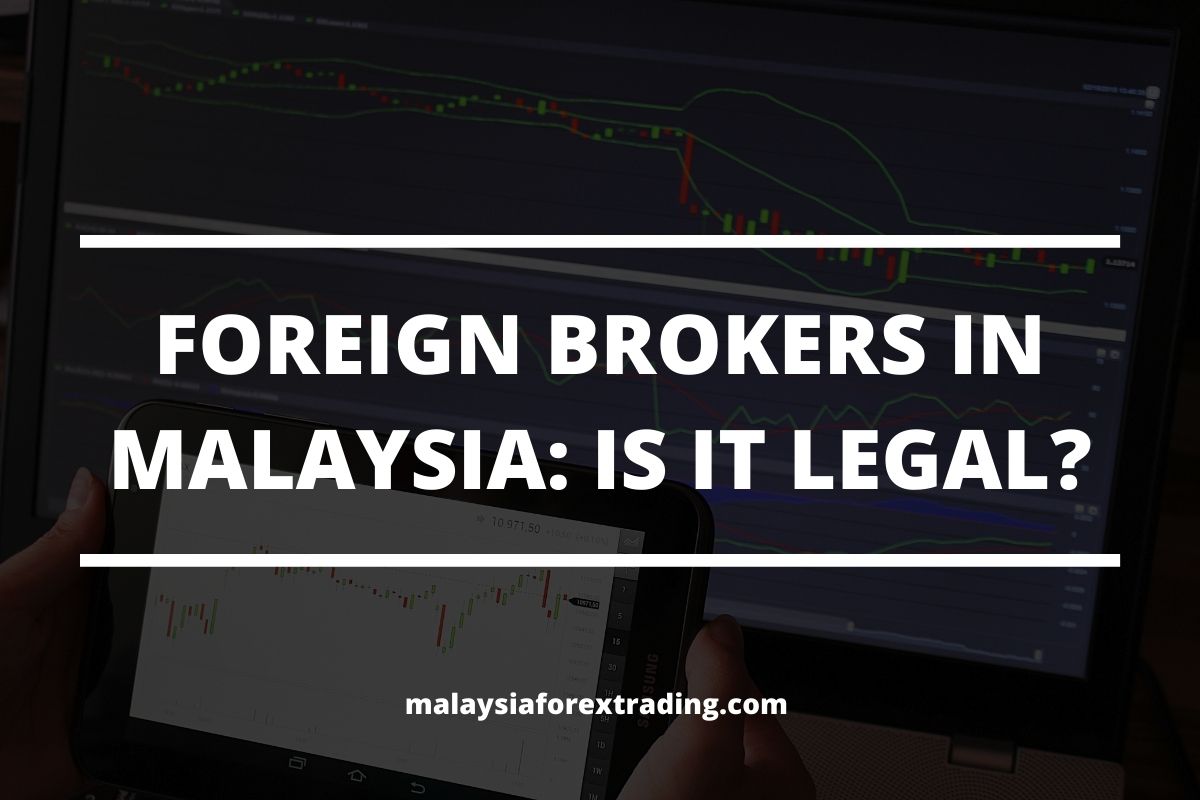Have you ever wondered how the exchange rates for currencies fluctuate? Or perhaps you’ve considered dipping your toes into the exciting world of forex trading, but weren’t sure where to begin? The foreign exchange market, or forex, is the largest and most liquid financial market globally, offering exciting opportunities for investors of all levels. But with its intricacies and potential risks, choosing the right forex broker is crucial for Malaysian traders.

Image: malaysiaforextrading.com
Malaysia’s growing interest in forex trading has led to a burgeoning market of brokers catering to both novice and experienced investors. This comprehensive guide will delve into the key considerations for choosing a reputable forex broker in Malaysia, unpack the different types of brokers available, highlight the factors to look for in a trustworthy platform, and discuss the regulatory landscape that governs forex trading in Malaysia. Whether you’re a seasoned trader or just starting your forex journey, understanding these factors is essential to making informed decisions and maximizing your trading potential.
Understanding the Forex Market
What is Forex Trading?
Forex trading, or foreign exchange trading, involves buying and selling currencies in the hopes of profiting from exchange rate fluctuations. Unlike traditional stock markets, where you buy and sell shares of companies, in forex, you’re trading two currencies against each other. For example, you might buy US Dollars (USD) and sell Malaysian Ringgit (MYR) speculating that the USD will strengthen against the MYR. The difference in the exchange rate, when you sell your USD back for MYR, represents your profit or loss.
Key Concepts of Forex Trading
-
Lot Size: Forex trades are typically measured in lots, representing the amount of currency you’re buying or selling. Standard lot sizes are 100,000 units of the base currency.
-
Leverage: Forex trading offers leverage, allowing traders to control a larger position with a smaller deposit. Leverage magnifies potential profits but also increases potential losses.
-
Pip (Point in Percentage): The smallest unit of change in an exchange rate is called a pip. Profit and loss in forex trading are measured in pips.
-
Spread: The spread is the difference between the buy and sell prices for a currency pair. It represents the broker’s profit for facilitating the trade.
-
Margin: Margin is the amount of money you need to deposit to open and maintain a forex position. It serves as collateral against potential losses.

Image: www.datanfact.com
Choosing the Right Forex Broker in Malaysia
Selecting the right forex broker is crucial for success in forex trading. Here’s a breakdown of key factors to consider:
1. Regulation and Licensing:
The most important factor is to ensure your chosen broker is regulated by a reputable financial authority. In Malaysia, the Securities Commission of Malaysia (SC) is the primary regulator for forex brokers, ensuring they adhere to strict guidelines and standards. A regulated broker provides essential safeguards for your funds and trading operations.
2. Trading Platform and Tools
A user-friendly and feature-rich trading platform is essential for smooth execution of trades and managing your positions. Look for platforms that offer:
- Real-time quotes and charts: Essential for analyzing market trends and making informed trading decisions.
- Order types: Various order types allow you to customize your entry and exit points based on your trading strategy.
- Technical indicators: Technical analysis tools that help identify potential price trends, support and resistance levels, and other signals.
- Mobile accessibility: The ability to trade from your smartphone or tablet provides flexibility and convenience.
3. Account Types and Minimum Deposit
Brokers typically offer different account types, each with varying features and minimum deposit requirements. Identify the account that best suits your trading style and budget. Beginner traders might opt for a demo account to practice before committing real funds.
4. Trading Instruments and Currency Pairs
Ensure your chosen broker offers the currency pairs, metals, and indices you’re interested in trading. A wide selection allows you to diversify your portfolio and explore different strategies.
5. Customer Support
Effective customer support is vital for any trading platform. Choose a broker with responsive support teams via email, phone, or live chat, especially during market hours.
6. Educational Resources
Many reputable forex brokers provide educational resources like webinars, articles, and tutorials to help traders improve their understanding of the market and develop their skills.
Types of Forex Brokers
Forex brokers in Malaysia are broadly categorized into the following types:
1. Market Makers
Market-making brokers act as counterparties to their clients’ trades. Rather than matching buyers and sellers directly, they match your trades against their own internal book. This can lead to potential conflicts of interest but can also execute trades quickly and efficiently.
2. ECN Brokers
Electronic Communication Network (ECN) brokers connect traders directly to a network of liquidity providers, such as banks and institutional investors. This often results in tighter spreads but might have higher minimum deposit requirements.
3. STP Brokers
Straight Through Processing (STP) brokers act as intermediaries, passing client orders directly to their liquidity providers without any internal intervention. This generally offers better transparency and typically tighter spreads than Market Makers.
Factors to Consider When Choosing a Forex Broker
In addition to the key factors already mentioned, the following considerations are crucial for making a well-informed decision:
1. Spread
A lower spread is always favorable, as it reduces the overall trading costs. Compare spreads across different brokers to find the most competitive rates.
2. Commission
Some brokers charge commissions on top of spreads. Be sure to factor in these costs when evaluating brokers.
3. Account Funding and Withdrawal Procedures
Ensure convenient and secure methods for funding your account and withdrawing your profits. Check the processing times and any associated fees.
4. Trading Conditions
Pay close attention to the trading conditions, such as the maximum leverage offered, minimum order size, and the maximum order size allowed.
5. Security Features
Choose a broker that employs robust security measures to safeguard your account and personal information. Look for features like two-factor authentication, SSL encryption, and regular security audits.
The Regulatory Landscape for Forex Trading in Malaysia
The Malaysian forex market is heavily regulated by the Securities Commission of Malaysia (SC). Brokers operating in Malaysia must obtain a Capital Markets Services License (CMSL) from the SC, demonstrating their financial stability and commitment to fair and transparent trading practices.
Regulations and Guidelines
The SC enforces strict regulations including:
- Capital requirements: Brokers are required to maintain a certain amount of capital as a buffer against potential losses.
- KYC/AML procedures: Know-Your-Customer (KYC) and Anti-Money Laundering (AML) procedures are mandatory to prevent financial crime.
- Transparency and disclosures: Brokers must disclose their trading conditions, fees, and risks transparently to clients.
- Client protection: Measures are in place to protect client funds, such as segregated accounts and insurance policies.
Benefits of a Regulated Marketplace
The robust regulatory environment in Malaysia benefits traders by:
- Ensuring fair play: Regulation prevents market manipulation and price fixing, fostering a level playing field for all traders.
- Protecting client funds: Segregated accounts and insurance policies safeguard traders’ funds even if a broker faces financial difficulties.
- Enhancing transparency and accountability: Strict reporting requirements and transparency regulations ensure the market operates ethically and responsibly.
Malaysia Forex Brokers
Conclusion
Choosing the right forex broker is paramount for success in the Malaysian forex market. By understanding the regulatory landscape, comparing trading platforms, and considering factors such as spread, commission, and customer support, traders can confidently select a reputable broker that aligns with their needs and goals. However, remember, forex trading always involves risks, and it’s crucial to educate yourself thoroughly, manage your risk effectively, and start with a demo account to gain experience before committing real funds.







